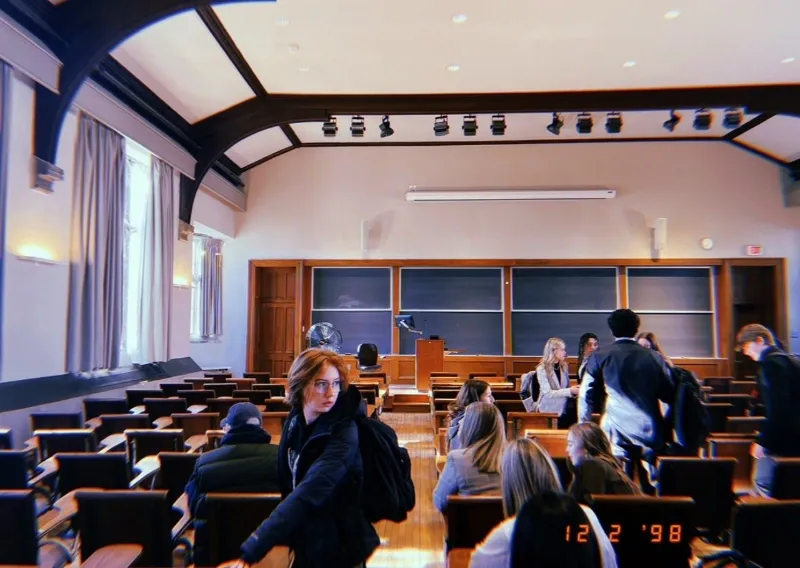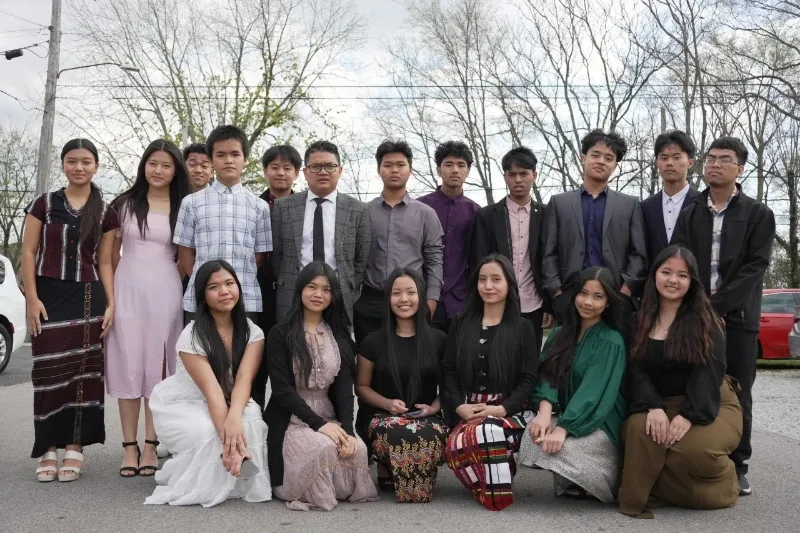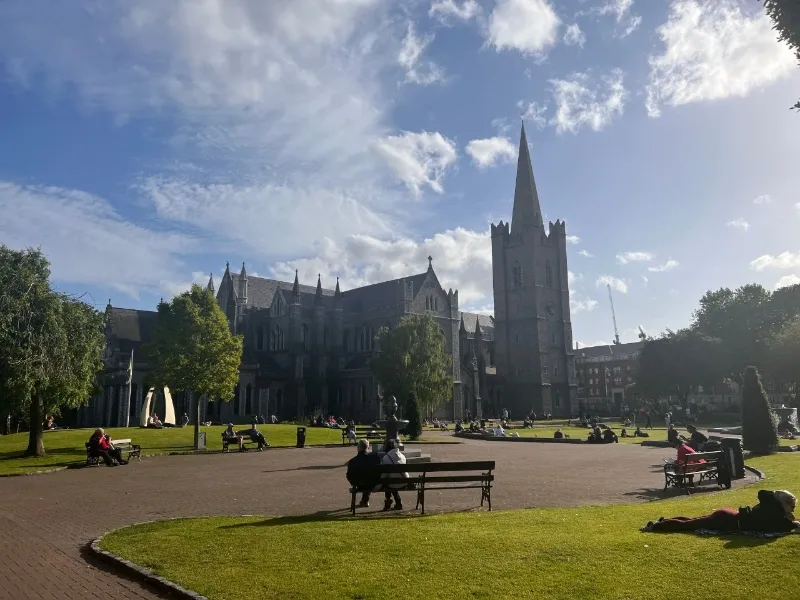What Is Columbia University Known For?


Have you ever thought about pursuing an Ivy League institution while living in the vibrant city of New York, a metropolitan center where you can find people from all cultures of the world? If so, Columbia University—one of the world’s most prestigious academic institutions—might be the perfect place for you. Columbia is renowned not only for its rich history but also for being one of the top universities worldwide with the most Nobel laureates.
This article talks about what makes Columbia truly exceptional and why studying there can be a transformative experience that shapes your life in ways you never imagined. I will cover everything from Columbia’s faculty to the people you will meet. At a school like Columbia, every place you visit will serve as a classroom, on and off campus. So, grab a pen and your notebook and get ready for the educational experience of a lifetime.
Let Bold.org turn your dream of getting an Ivy League education into a reality. Apply for scholarships tailored to your unique strengths and unlock your full potential today!
Get Matched to Thousands of Scholarships
Create your Bold.org profile to access thousands of exclusive scholarships, available only on Bold.org.
Create Free ProfileColumbia University
Originally established as King's College, Columbia University has taught me to view the world through a multitude of perspectives, thanks to its multicultural environment. I formed friendships with people from all corners of the globe and was constantly inspired by the intellectual diversity and historical richness of the university. Columbia students are unafraid to challenge conventional wisdom, using critical thinking to enhance their understanding of global issues, while the outstanding faculty pushes you to expand your intellectual horizons.
And where else can you meet distinguished faculty members like professor Frances Negrón-Muntaner, who can guide you to think critically about the cultural and ethnic ramifications of Latin America and the imposed perception caused by U.S. media? Or professor John Stratton Hawley, who can introduce you to the rich world of Hinduism and South Asian culture? Columbia students will get to know both university and academic histories on campus. But what else can you expect?
So, what is Columbia University known for? Let's get right into it!

Academic Excellence
As a former undergraduate student at Columbia University, I experienced firsthand the unique blend of creative and intellectual life that makes Columbia’s campus stand out. Not only does the school build world-class scholars, but it also exposes students to the artistic pulse of New York City. However, when the city’s allure isn’t yanking students away from their studies, Columbia’s architecturally structured campus serves as grounds for a well-rounded education.
Columbia University is known to be one of the most difficult Ivy League universities to get into. With a mere 6% acceptance rate, students who wish to attend this renowned college should know the journey through higher education at this institution won’t be easy. It bears a rigorous and demanding academic schedule, leaving little to no time outside of the classroom. So, if you thought city life is what makes Columbia stand out, you’re wrong—it’s their curriculum.
Columbia believes in its Core Curriculum and its mission to provide students with fresh approaches to studies in art, history, philosophy, literature, music, and sciences. As core classes are smaller in size, students are able to get a more personalized education and experience from Columbia’s exceptional faculty. Not only does this allow students opportunities to interact with renowned professors and future mentors, but it also allows them to build their analysis, observation, and critical thinking skills.
Create Your Free Profile to Apply for Scholarships Today!City & Campus Life
Aside from its core curriculum, Columbia University’s campus has one of the biggest advantages of any other university in the Northeast: resting in the heart of the greatest city in the world, New York City. International students and graduate students of all levels can enjoy the fruits of the city by simply walking a few blocks off campus or a train ride away. And if you’ve ever been to New York, you know it truly is the city that never sleeps, so there is always something to do!
Having the city on your side can bring both academics and life together in ways you can’t imagine. Columbia students have internships and potential professional opportunities through select programs, which means they get to experience what the city has to offer in more ways than one. And if you think about it, aside from your students, being in the center of the city chaos prepares students for what the hustle and bustle of the real world can be like. You know what they say: if you can make it in New York, you can make it anywhere.
Now, back on campus, life can be just as adventurous and advantageous for students. Columbia University offers its student body plenty of extracurricular activities and events to participate in for social gain. Depending on the time of year, each activity can vary from a college walk to on-campus fresh markets! Known to be one of the biggest cultural institutions in the world, Columbia offers a vibrant and engaging campus life, enabling students to get involved and stay involved!
Columbia also holds yearly traditions that get students more involved in campus life. Traditions like Orgo Night or The Varsity Show, and even the annual Columbia tree lighting. Yes, that’s right, Columbia holds a tree-lighting ceremony just like Rockefeller Center, which alums can gather in student groups to visit in the winter. Between location and opportunity, Columbia University has it all!
If you’re a graduate student or looking to head to New York for a higher education, read our article about the best colleges in New York!

Columbia Undergraduate Schools
This Ivy League Institution comprises four undergraduate schools: Barnard College, School of General Studies, Columbia College, and School of Engineering and Applied Science. Each school contributes to students' intellectual growth by providing unique perspectives and philosophies.
Barnard College
Barnard College was founded in 1889, and women are the only students who can be accepted. This college is revolutionary in the history of women fighting for rights in a century when men were explicitly the leaders and had access to job titles and education at the most prestigious University in the U.S. The name of Barnard was after Frederick A.P . Barnard, the 10th president of Columbia College, and he pronounced himself for the rights of women and acceptance at Columbia University.
However, a student named Annie Nathan Meyer joined other groups of students to advocate for an affiliated liberal arts women's college. After nine years, the college moved above the Upper West Side in Morningside Heights, the region of Columbia University. In 1900, Barnard was included in the educational system of Columbia University, and since then, the institution and distinguished faculty members have taken women's education to a higher level, challenging them intellectually and preparing future professionals who contribute to society in a wide range of industries in the world such as Anne Anastasi, a psychologist and the third female president of the American Psychological Association and recipient of the National Medal of Science.
School of General Studies
As a former student of the School of General Studies, I had the privilege to return to the University after taking more than a year gap in my studies. This school only accepts nontraditional students who, for many life reasons, took at least one year gap in their educational journey. The rigorous approach of the School of General Studies allows students to be part-time because many have other life obligations for working part-time, full-time, and sometimes also being a father or mother.
The School of General Studies requires its students to take Columbia's core curriculum, which includes classes in nine different fields of study, such as writing, literature, language, art, global core, social sciences, quantitative reasoning, and science. While students take the required classes, they are exposed to classes that will make them think about which fields of thought align better with them. Later, they are able to declare a major, a double major, or sometimes a major and a minor.
As a former student of the School of General Studies, I had the honor of learning from distinguished faculty, but also some of my colleagues carried with them unique stories of struggle and victory. Contrary to many Columbia students, the owls (students of the School of General Studies) were often independent students.
Among the incredible minds I had the privilege of making friends with, I can mention refugees of countries that are facing political and social conflicts, women who were abused by family members and partners and had to fight for their rights while raising their children, members of the LGBTQ+ community who have faced discrimination and were seen as absurd by their place of origin, Veterans of war, actors and dancers, and many other nontraditional people, with paths of example and victory.

Columbia College
Columbia University started with the historical Columbia College, first named as King's College. The institution was founded in 1754 during the period of Colonization, and some of its former students, like Hamilton and John Jay, influenced the history of the United States, for they were both involved in the creation of the Constitution of the United States.
Columbia College is the most traditional college at Columbia University, and to be part of the student body of Columbia College, high school students have to have an exceptional resume. It is essential to have leadership experiences, intellectual curiosity, and the capacity to solve complex problems if you want to be part of Columbia College to ensure you, the admissions office, understand that you can navigate the rigorous intellectual environment of Columbia University.
When I was studying at Columbia University, I had the privilege of meeting some students at Columbia College, also known as CC, and it amazed me to meet determined young people who could express themselves in such an elaborate manner. The students at Columbia College are ambitious and want to make changes in their industries and society. Their capacity for reflection and social awareness can often be an outlier in society, leading to notable alums who have been Pulitzer Prize winners, Emmy award nominations, and former presidents.
School of Engineering and Applied Sciences
The Fu Foundation School of Engineering and Applied Science has an undergraduate program for students in 17 different areas of engineering, from computer science to earth and environmental engineering. The former allows students to get involved with the Earth Institute, which is an opportunity to research the globe and work on topics related to climate change. Students must also explore other intellectual topics since they must take about 27 credit hours in writing and humanities classes, such as political science.
The SEAS at Columbia University is also a graduate school, and you can meet many international students there. Graduate students are invited to explore all the intellectual fields that undergraduate students have access to. The school's academic excellence offers the possibility of students graduating with a Ph.D. as well. Additionally, many students also get involved with Columbia Technology Ventures, an initiative of Columbia University in which students and faculty members can work together to create new technologies to innovate the world.

Frequently Asked Questions About What Columbia University Is Known For
What are the best professional schools at Columbia University?
Although Columbia University has proven academic excellence in its undergraduate programs, the university can give its students access to many other graduate schools and professional schools. Many of the professional schools are well known; particularly Columbia University's law school. Pursuing law professionally can be a daunting endeavor. Read here to get a better idea of how long law school is and what it entails.
Additionally, Columbia University Medical School is a great opportunity for students who want to become involved in the healthcare industry. Also known as Columbia University Irving Medical Center, students have access to four schools, from the School of Physicians and Surgeons to the School of Public Health. Check out the prerequisites for medical school here and make sure you're prepared for premed life.
Columbia's professional schools are just as prestigious as its undergrad programs, if not more so. For those of you considering Columbia for your master's degree, apply for these graduate school scholarships now to start planning for your future!
What is the average GPA for admitted students at Columbia University?
Columbia University uses a holistic approach to admitting students, which means that they analyze students' profiles according to their extracurricular and educational experiences. However, as a former student, I would recommend having a GPA close to 4.0. When I transferred from community college to Columbia University, my GPA was 3.95.
What is the acceptance rate?
The first-year class profile for the class of 2027 had an acceptance rate of 4%. Out of the 57,126 high school students who applied, 2,285 were admitted.
Don't let finances hold you back. Find scholarships tailored to your strengths on Bold.org and pursue your education at Columbia University.

About Caio
Caio is a dedicated content writer and researcher with a strong focus on psychology, education, and social justice. He has extensive experience in topics such as work-study, financial aid, internships, and scholarships.
Caio holds a B.A. in Psychology from Columbia University in the City of New York. He has explored various topics, including educational bilingualism, social psychology, cognitive psychology, and neuroscience.
Experience
Caio's journey in writing and research began at LaGuardia Community College in 2019. He explored educational bilingualism in New York, analyzing how bilingualism is prioritized in specific areas and its impact on children's cognitive abilities compared to monolingual education. He also investigated social psychology topics, focusing on the discrimination faced by African Americans, from microaggressions to mass incarceration, and the resulting mental health issues such as PTSD, depression, and anxiety.
After transferring to Columbia University in 2021, Caio further honed his writing and research skills. His work included examining the portrayal of Latinos as criminals in Hollywood and the societal biases this image perpetuates. He also researched cognitive psychology topics, such as the effects of work-life balance on mental health and the interplay between work identity and life identity. Additionally, Caio participated in neuroscience research, assisting with MRI studies to understand spatial behavioral navigation, the hippocampus's role in memory and orientation, and evaluating treatments for Ideomotor Apraxia.
Since joining the Bold.org team in 2024, Caio has leveraged his extensive background to help students navigate their educational journeys. His personal experiences as an immigrant navigating the U.S. educational system, from paying student loans to winning scholarships, and his work with a nonprofit supporting low-income adults in pursuing higher education have fueled his passion for education and social equity.
Caio is driven by his desire to make a meaningful impact. Through his creative and engaging writing, he addresses relevant issues with the powerful art of storytelling. He aims to provide valuable insights and resources to students, helping them understand the nuances of college life and the support available to them.
Quote from Caio
"The purpose of education is to replace an empty mind with an open one." -Malcolm S. Forbes
"My interpretation of this quote is that our minds can be fulfilled by 'empty' ideas, which means that we are not looking for further sources to fulfill our minds but those in our comfort zone. However, when we educate ourselves, we dive into a world of complexities beyond our imagination. It is like taking a trip to a very different country. We become members of a continuous legacy created by beings like us in which we have developed our ability to use a wonderful human tool: language. Sharing educated theories through language is how humans can easily contribute to one another's successes. Why not be open to education?"